Heart health: NFL, trainer Denny Kellington at Capitol to push for AEDs and emergency plans in schools
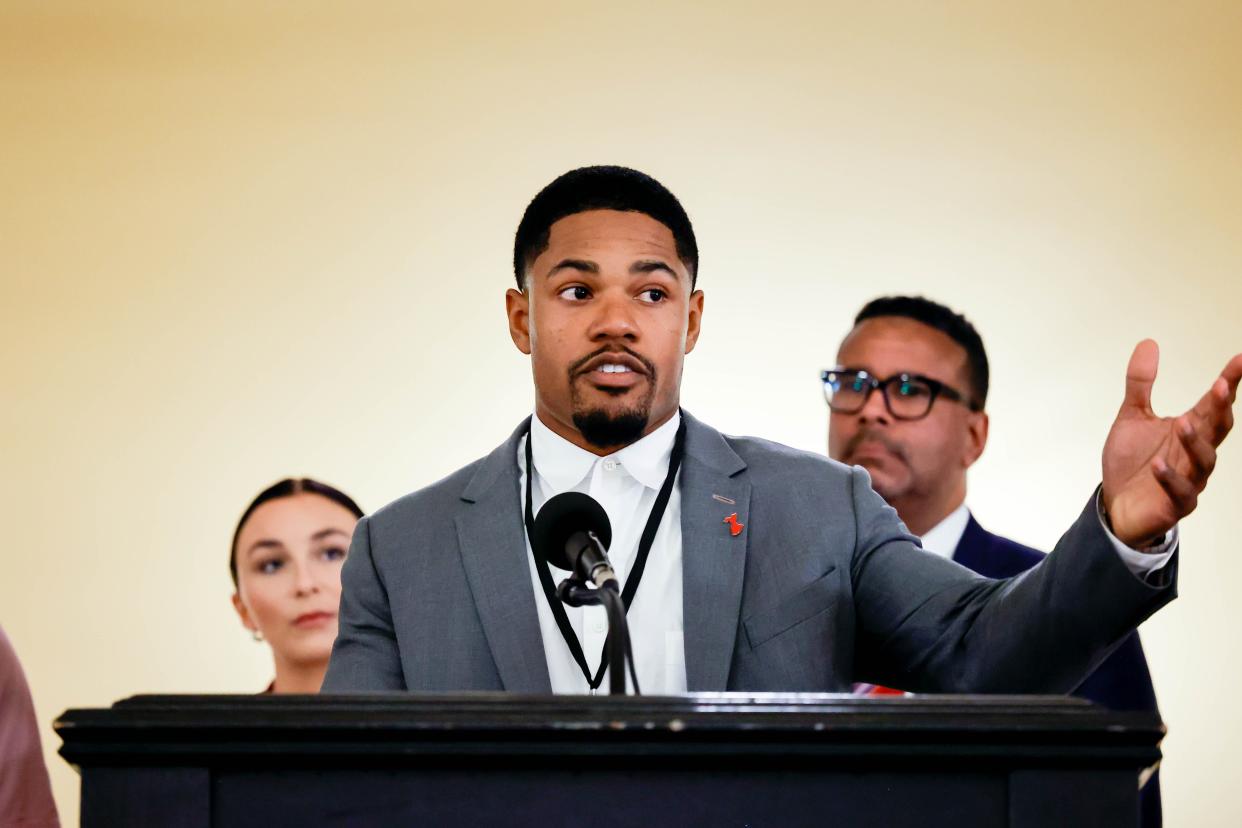
When Buffalo Bills player Damar Hamlin suffered cardiac arrest on the field during a Monday Night Football game at Cincinnati on Jan. 2, 2023, Oklahoma native Denny Kellington was part of an athletic training team in the right place, at the right time, with the right equipment to revive Hamlin.
Kellington, National Football League player Sterling Shepard and a NFL vice president were among those at the Oklahoma Capitol on Monday to rally for the passage of Senate Bill 1921, which would mandate that every public school in the state have in place a cardiac emergency response plan (CERP) that would include a response team. The bill would also support the placement and maintenance of an automated external defibrillator (AED) at every school, along with training and preparedness activities.
The House approved the bill — authored by Sen. Paul Rosino, R-Oklahoma City — by a 74-1 vote on Monday, but not before striking its title, a technical amendment that will send the bill back to the Senate. That action came at the request of its House sponsor, Rep. Bob Ed Culver, R-Tahlequah, because of questions raised about funding the purchase of defibrillators for schools.
Differences between the Senate and House versions of the bill would need to be worked out in a joint Senate-House committee, and then both chambers would again have to approve the bill before it could go to Gov. Kevin Stitt for his signature.
Bills' trainer believes bill would make Oklahoma schools safer
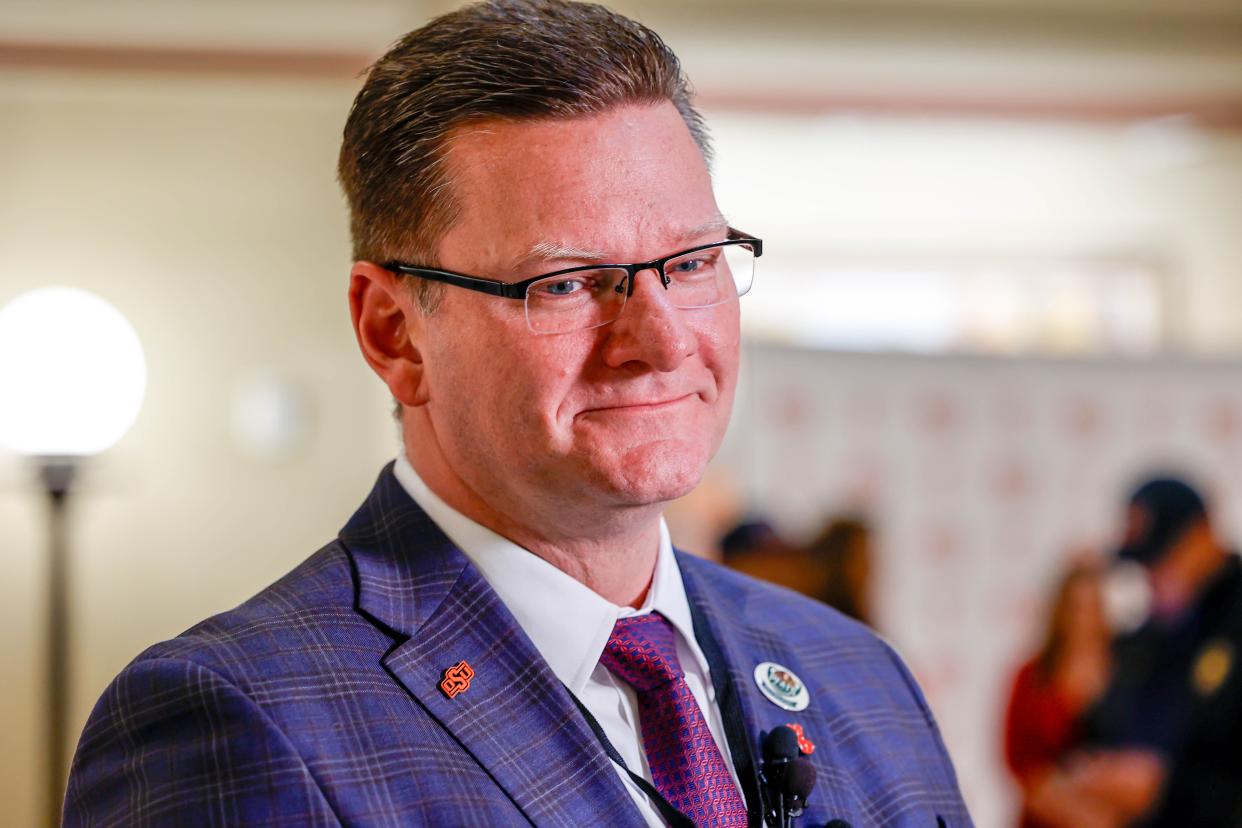
Kellington said passage of the bill ultimately would result in safer schools for Oklahoma children.
“It just gives that platform for having these plans in place to help save a kid if they were to suffer cardiac arrest,” Kellington said. “Schools may not have an athletic trainer, but they have a school nurse, they have a principal, they have coaches and PE teachers — all these individuals can do CPR. You can put an AED on somebody and save a kid’s life. … Anybody can be prepared, but you’ve got to have those discussions in advance.”
According to the American Heart Association, more than 356,000 cardiac arrests occur outside of a hospital annually in the U.S., including 23,000 involving children, but only 40% of those people receive the immediate help needed for survival. The association says in schools with AEDs, about 70% of children survive cardiac arrest — which is seven times the overall survival rate for children.
Opinion How to tell Oklahoma legislators that schools must have a cardiac emergency plan.
Kellington, who’s from Midwest City, attended Oklahoma State University and served as an athletic trainer there and at Syracuse University before joining the Bills’ training staff in 2017. He’s now the team’s associate head athletic trainer. The Bills’ training team is widely credited with saving the life of Hamlin, who returned to play in the NFL last season.
“It was a lifetime of practice and rehearsing what we call emergency action plans in the NFL — planning, rehearsing, discussing emergency situations that may arise,” Kellington said. “So when we were called to act, our team of athletic trainers and physicians stepped up to that situation. We’re here today because of the success we had that night.”
Former Heritage Hall, OU star and NFL VP also speak out about need for cardiac emergency law
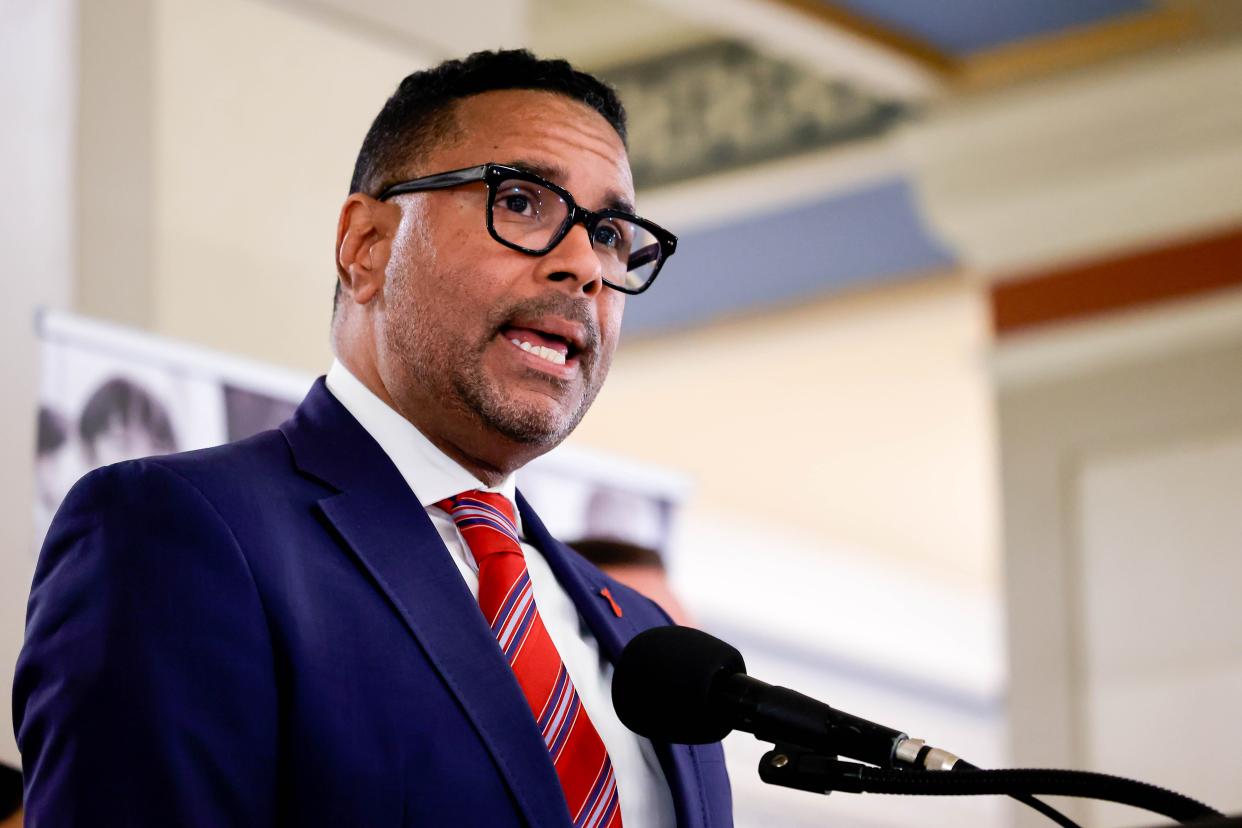
Hamlin’s story hits close to home for Shepard, a former standout at Heritage Hall High School and the University of Oklahoma before spending the last eight seasons in the NFL with the New York Giants. His father, former OU star and NFL player Derrick Shepard, died in 1999 at age 35 because of a heart attack he suffered while playing racquetball.
Hamlin and Sterling Shepard have become friends, and Shepard remains passionate about the development of cardiac emergency response plans.
“This is something that has affected my life in a major way,” Shepard said. “Damar’s story speaks volumes to me. It’s something that I’ve lived through and it’s something that I talk to him about frequently. … I’m just trying to bring awareness, and that’s the reason why I’m here today.”
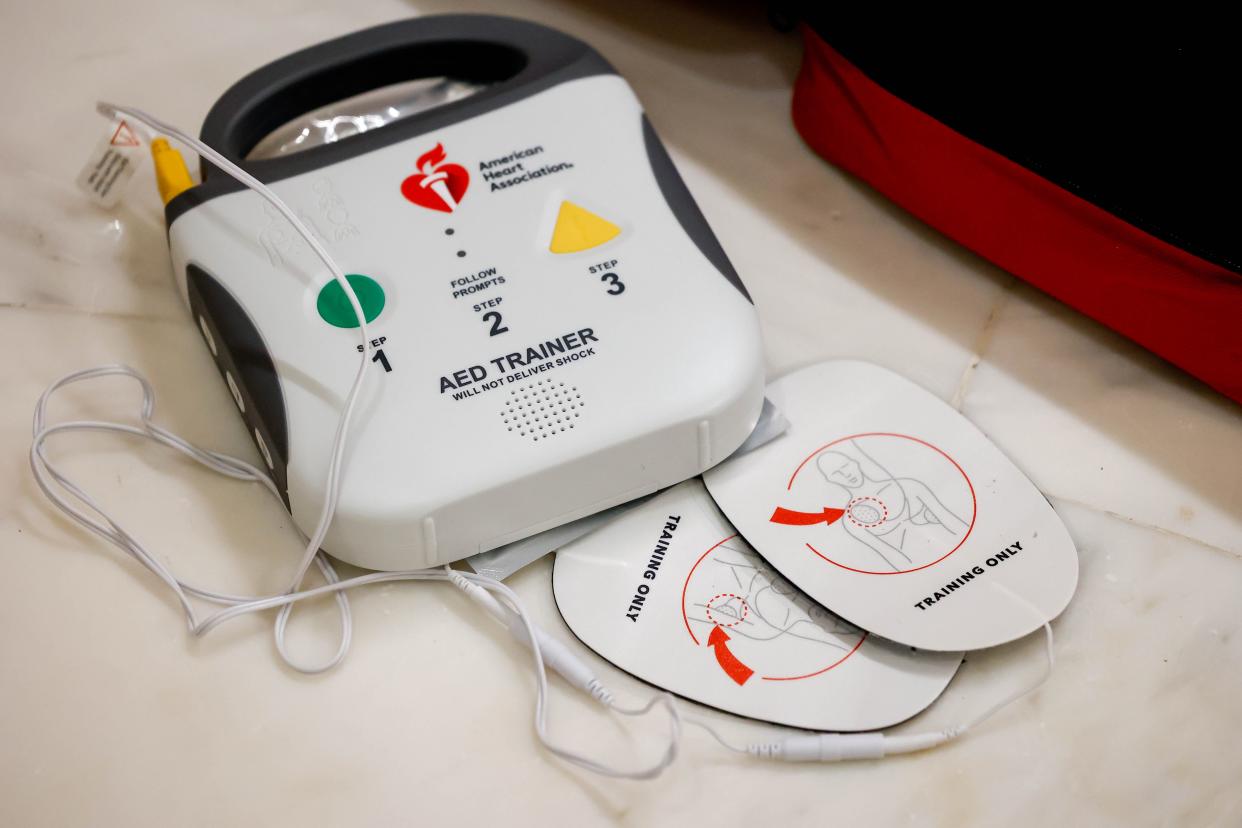
The NFL formed the Smart Heart Sports Coalition after Hamlin’s on-field collapse and joined officials from the American Hearth Association in sponsoring the rally before the House vote on Monday. Kenneth Edmonds, the NFL’s vice president for public policy and government affairs, said public awareness into how to properly deal with cardiac arrest now is heightened.
“We know every minute and every second after a cardiac arrest is critical,” Edmonds said. “The cardiac emergency response plan spells out what school personnel need to do to swing into action and save lives. … Now that people know, we really need to put plans and measures in place to prevent fatalities when sudden cardiac arrest happens. That’s exactly what this bill will do.”
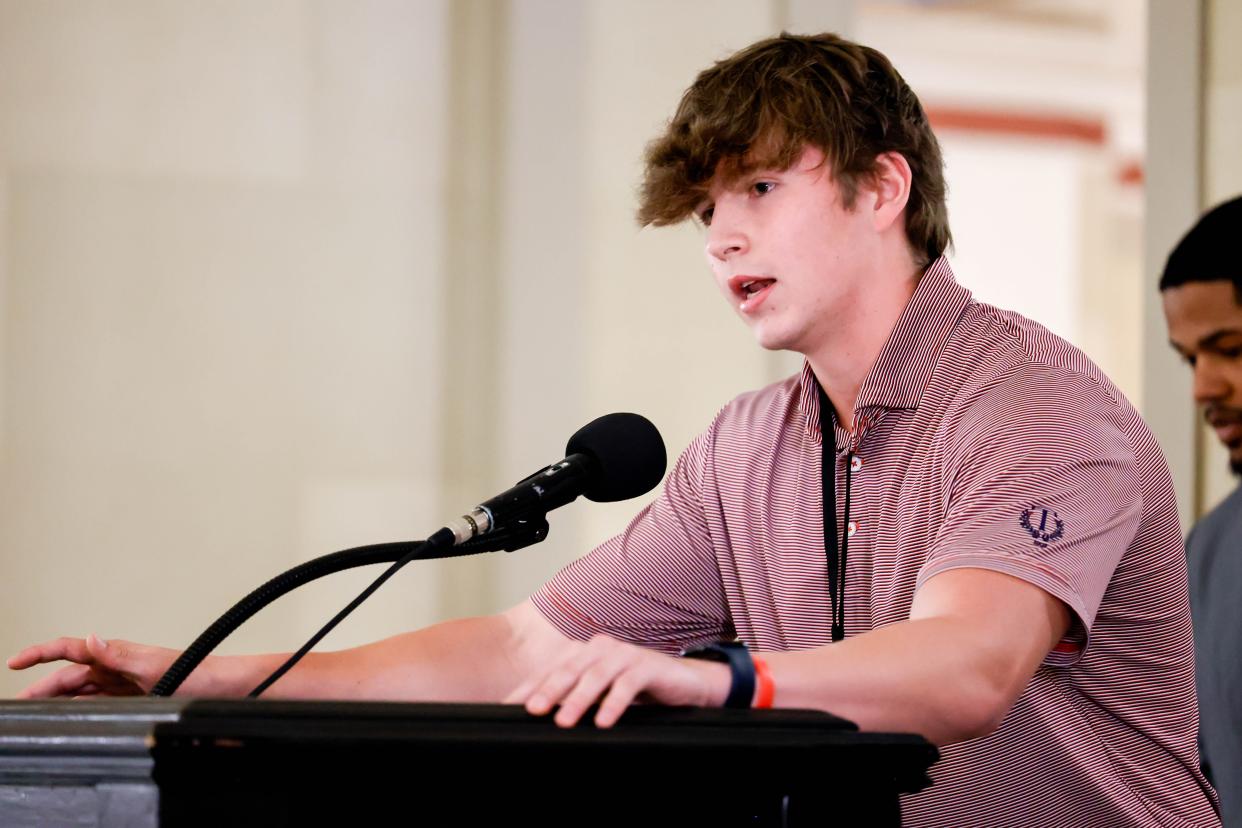
Collin Cottom is living proof of the positive ramifications of having a defibrillator available. The senior at Cascia Hall Preparatory School in Tulsa suffered a on-field cardiac arrest during a football game but was revived through quick action by athletic trainers. He can’t play contact sports any more but otherwise leads a reasonably normal life, he said.
Passing the bill will “save lives like mine,” Cottom said. “If there wasn’t an AED at the game I was at, I wouldn’t be standing here today.”
Kellington said he wants to use any fame he has to help encourage Oklahoma schools to develop cardiac emergency response plans.
“I have skin in the game in Oklahoma — I have nieces and nephews and friends with kids that are all public school students,” Kellington said. “If I can just have a little bit of an impact on their lives, making sure that they are safe, if any of them was to succumb to cardiac arrest — having that plan in place is going to increase their rate of survival.”
This article originally appeared on Oklahoman: NFL officials urge adoption of Oklahoma cardiac emergency response law
